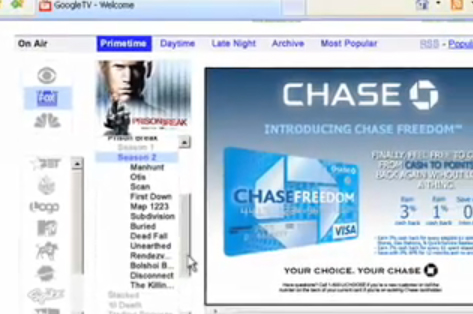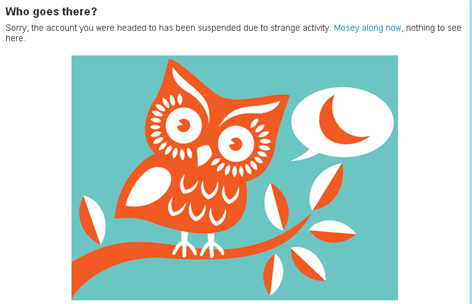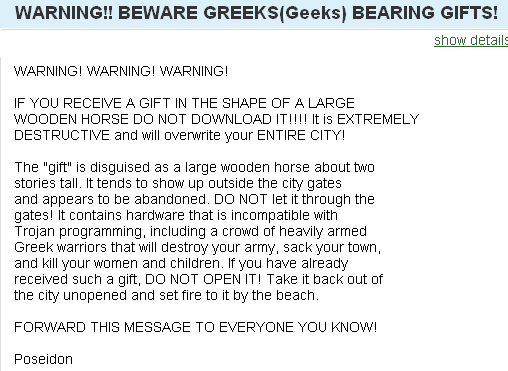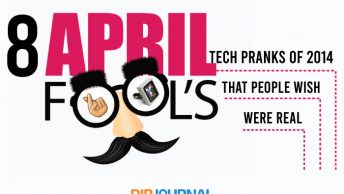 Internet hoaxes are numerous – they may take different forms. They can be spread for malicious purposes: to steal your personal information or spoil someone’s reputation. Or they may be absolutely innocent and created for God knows what reasons.
Internet hoaxes are numerous – they may take different forms. They can be spread for malicious purposes: to steal your personal information or spoil someone’s reputation. Or they may be absolutely innocent and created for God knows what reasons.
This post is meant to look into those hoaxes that are no harm to anyone. Well, some people might be still ripped off but that was not intended. Here are most creative and sensational Internet but harmless hoaxes of all times:
Fake Photos:
Fake photos are spread around the Internet faster than anything. Some of them are remembered for years and never stop provoking rumors and discussions. Two most long-lasting photos which are still traveling from blog to blog are pictures of a giant cat, a shark attacking the helicopter and the accidental tourist photographed on top of the World Trade Center right before the terrorist attack of September 11, 2001.
Snowball, the Giant Mutant Cat of Ontario:

Shark Attacks Helicopter (larger photo):

The 9/11 Tourist Guy:

Fake Videos: Google TV

2007 was the year when the Internet users were fooled into believing that Google was going to launch “Google TV” – the service in beta that allowed to watch all your favorite TV shows online for free. The video posted on Youtube provided the instruction on how to sign up for the private beta – the idea was eagerly supported by bloggers who start spreading the word.
Google TV was rumored to be supported by major TV channels. Additionally, the video featured the tutorial on how to use the service and what it looks like inside. The video was surprisingly convincing and easy-to-believe:
Fake Characters: Lonelygirl15

A fictional teenage girl named Bree, whose YouTube username is the eponymous “lonelygirl15”, achieved massive popularity posing as a real 16-year-old video blogger. To further the initial illusion that Bree was a real girl, a MySpace page was set up for her and she was corresponding with many of her fans.
In reality, the whole team of professional filmmakers was behind the online character:
Fake Twitter Accounts

Since Twitter became popular, many celebrities and famous people joined it to communicate with fans and followers. Many of those accounts are fake – funniest hoaxes among them are:
- @cnnbreaking is the fake CNN account responsible for numerous fake news. Too bad they do not update their stream frequently enough. My favorite Tweets from them are:
“Apple unveils ultra-fragile, overpriced new laptop.”
“No joke: Obama wins!”
- Dalai Lama was found to have joined the micro-blogging service under the name @OHHDL, The Office of His Holiness the Dalai Lama. A few days later the hoax was discovered and the account was suspended as
“Using Twitter to impersonate others in a manner that does or is intended to mislead, confuse, or deceive others is also cited in the Twitter Rules.”
- The self-proclaimed ‘official’ Twitter account of the Austin, Texas, police department @AustinPD was suspended on March, 25, CNet.com reports:
“Updates from the fake Twitter account included “warming up my radar gun for SXSWi” and “we’re looking to make more stops at SXSW this year than last,” as well as references to police jargon codes that seemed to be stemming from a knowledge of gangsta rap lyrics rather than actual law enforcement.”
Fake Websites:
Create a false website on some fake event or announcement and spread it around – you are most likely to get some attention. Why? Because people love sensations and hoaxes no matter how lame and unbelievable they are. Just one of the numerous examples: Christopher Walken’s 2008 Presidential Campaign site that was mentioned by Washington Post as well as other reputable web resources.
The site is an obvious hoax but people were talking about it no matter what:

Funny Email Spam
I hate spam (as well as anyone having an email address does, I guess). However this type of spam makes you smile – so it’s a good one, I suppose. These messages are often sent out as a reaction to some notable event – they never steal your personal details or mean anything bad at all.
Here is one of the best examples: a humorous warning based on the story of the Trojan Horse (via bored.com):














[…] by jessytroy [link] [17 […]
With the advance of internet, we will start to see more internet hoaxes coming up. Personally, I have received tons of ‘winning lottery tickets’ from Yahoo, from UK etc informing me that I had won in their sweepstakes. If I had really won, I must be one very lucky fellows and I would have been a millionaire already. Not only that, I have also received countless email on business collaboration or someone wanting to transfer a sum of money from their dead clients.
I have often thought to myself, why do these people want to cheap people of their money when they are so creative and they have the brains. Could they have done something more positively to contribute to their own respective communities?
Although these internet hoaxes caused no harm whatsoever, they have an element of deceit.
[…] scams are numerous, some of the hoaxes are totally harmless, others are designed to steal your money or private […]
[…] all scams are harmless, unfortunately. More often than not, scams are intended to steal your money or personal information […]